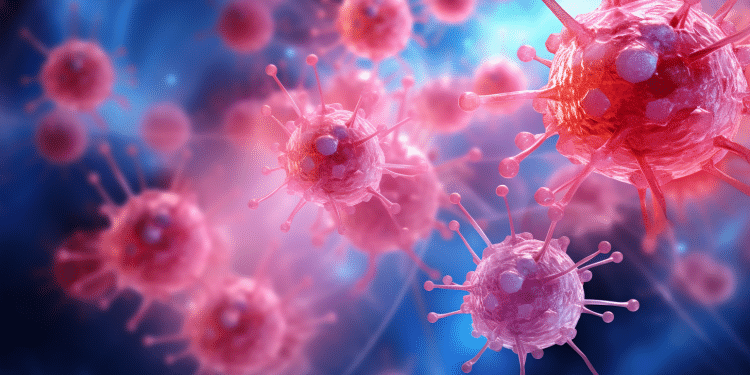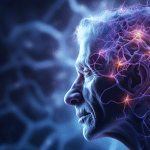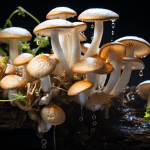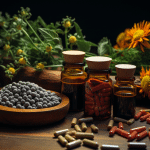In my mind, mushrooms are one of those foods that you either love or hate. For instance, you either love their earthy, bold flavors and their chewy texture (when cooked), or maybe you cannot get over the fact that if you are eating mushrooms, you are eating a fungus!
They are versatile, easily adding depth to any dish. I have browned and typically add them to omelets and stir-fries, thinly sliced raw and dropped into salads.
I have blogged before about the potential benefits of eating mushrooms. What is especially unique about mushrooms is that they are one of the only sources of non-fortified food with vitamin D (which is a nutrient essential for bone health, and can help prevent acute respiratory infections). They are also a good source of plant-based protein, and they may even aid cancer prevention.
If you are not the biggest fan of mushrooms, then hopefully, the following information can change your mind. Remember, there are a lot of different types of edible mushrooms out there, and there are many different ways of cooking them. Maybe you just need to play around a bit more and try some new dishes and recipes. According to a new study conducted at Penn State University, eating high amounts of mushrooms might be associated with a lower risk of developing cancer, that could be tied to a critical amino acid found in mushrooms called ergothioneine.
Does Ergothioneine Prevent Cancer?
There have been studies discussing this topic that analyzed 17 studies on cancer published between 1966 and 2020. They examined data on over 19,500 cancer patients, and a link between eating mushrooms and cancer risk. Basically, the results showed that those who consumed close to 18 grams of mushrooms per day (which is not a whole lot, just under one cup) had a 45% lower cancer risk compared to those who did not consume mushrooms. Fungi are the highest source in diets of ergothioneine, a unique, powerful antioxidant and cell protector.
Replenishing antioxidants, like ergothioneine, in the body can help to guard against oxidative stress and reduce cancer risk. It is interesting to note that although shiitake, oyster, maitake, and king oyster mushrooms contain higher amounts of the amino acid ergothioneine than white button, cremini, and portobello mushrooms, researchers found that those who included some type of mushroom in daily meals had lower risk of developing cancer. What is more interesting about this study is that they found that this link between eating mushrooms and having a lower cancer risk was especially apparent for breast cancer. This is because most cancer studies that were analyzed were of breast cancer. But the key takeaway is that mushrooms can be an excellent anti-cancer food supplement due to their ergothioneine content.
Can Ergothioneine Help With Dementia?
As we discussed, ergothioneine is a naturally occurring amino acid that has antioxidative properties. It protects against cell stress that may cause brain disorders, neurological damage, and cancer.
In rats and roundworms, studies have shown ergothioneine has a promising effect on preventing neurodegenerative diseases like dementia and Alzheimers. In addition, patients suffering from neurodegenerative diseases are reported to have substantially lower levels of ergothioneine in their blood compared with others. These findings indicate that ergothioneine may have a greater potential as a vitamin for the prevention or delay of occurrence of such diseases. Still not on the mushrooms bandwagon?
What Other Foods Contain Ergothioneine?
Ergothioneine is also found in red beans and black beans.
If you can get away with eating portabello jack beans in your hamburger, you might actually have hit upon something pretty convenient. You might even want to stack the burger with extra, nutrient-dense, plant-based foods like avocados, tomatoes, greens, and sauteed onions. The good news is that overall, you can help protect your body from cancers of all kinds, and other serious diseases like dementia, by eating lots of whole foods rich in vitamins and minerals antioxidants. These foods help reduce inflammation throughout your body, which is thought to be a major contributing factor to all types of cancer.
Avoiding processed, ultra-processed foods is crucial these foods contribute to inflammation, and eating lots of vegetables and fruits is critical. Several reports suggest that nearly 40% of cancer deaths are preventable through lifestyle changes. Maintain a healthy diet by eating healthy foods and taking regular nutrient tests.
If you find yourself having too much or too little of a specific nutrient, a knowledgeable healthcare provider can help you make necessary diet changes and suggest quality supplements, as needed. As always, check with a competent healthcare professional to see which foods you should be including in your diet, particularly if you have existing health problems, are pregnant, or breastfeeding. You may also want to speak with your physician about taking an ergothioneine supplement, but know that eating healthy, consistently is valuable for overall health and well-being. Good nutrition is always superior to supplements (that is why they are called supplements).
You can find our favorite ergothioneine supplement on the following pages of our website and learn more about each individually:
Learn more:












